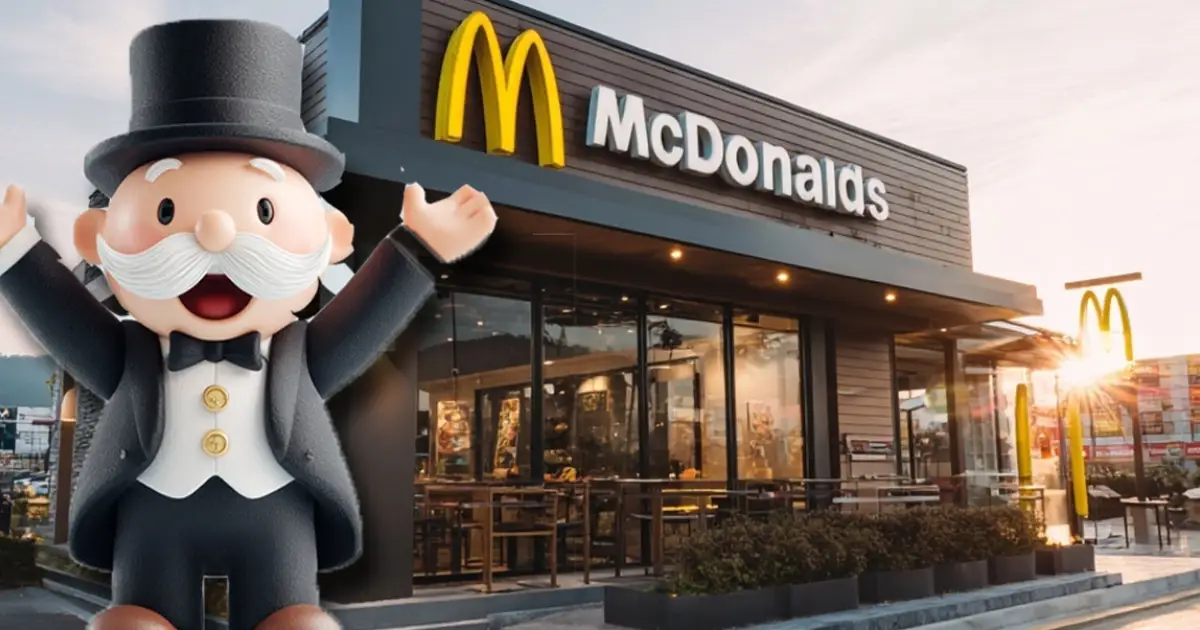McDonald’s Monopoly proves to be a dangerous gambling game for young people
It sounds innocent: you order a meal at McDonald’s, peel off a sticker and have a chance to win free chips, a drink or even a big prize. For millions of young people, this feels like a harmless game. But experts warn that these promotions are much more like gambling than most people realise.
Research by the British organisation GambleAware shows that more and more people are getting into trouble because of these kinds of promotions. Their figures are alarming: in 2020, 17% of problem gamblers sought help, and by 2024, that figure had risen to 30%. The number of people with serious gambling problems also increased, from 2.4% to 3.8%. Behind those percentages are thousands of lives disrupted by gambling behaviour.
Why prize games use the same triggers as gambling
Promotions such as McDonald’s Monopoly or Omaze lotteries play on the same excitement and expectations you experience with a slot machine or roulette wheel. You buy something, tear open a box and wait to see if you win. That brief moment of excitement triggers the same reward system in your brain as gambling.
GambleAware discovered that one in four participants in such promotions are at increased risk of gambling problems. This is because people do not realise that they are actually gambling, only without it being called that. And young people, who are still susceptible to impulses, are more likely to get used to the idea that you have to keep playing to win something.
This kind of creeping normalisation can also be seen in other areas. Consider, for example, how brands such as Hasbro link the name Monopoly to online casinos. Analyses of Monopoly partnerships with casinos show that this can draw young people even more quickly towards real gambling.
The personal consequences are greater than just financial loss
Zoë Osmond, director of GambleAware, calls gambling ‘a highly addictive activity that can destroy lives.’ She points out that the consequences are not only financial. Gambling addiction affects relationships, causes stress and can even lead to serious mental health problems.
She sees the fact that more people are seeking help as a positive development, but at the same time it is a red flag. It means that the problem is getting bigger. According to her, much stricter measures are needed: clear warnings on advertisements, more restrictions on social media and a ban on gambling promotion in environments where young people often gather, such as stadiums.
The situation in Belgium shows that this is not a distant problem. Recent figures show that one in four Belgian young people already gamble for money. For parents, schools and policymakers, this is an alarm signal that the risk is much closer than thought.
How advertisements and promotions influence young people without them noticing
Many young people see advertisements for prize games or gambling sites every day. Online, on TikTok, or just past the football field. Because promotions such as McDonald’s Monopoly are packaged as a fun game, young people do not see the risks.
The problem is that they learn at a young age that winning is a matter of chance and that you always have a chance – as long as you participate. For some, it remains a harmless game. For others, it can be the start of a pattern that leads to gambling addiction years later.
A growing problem that demands answers
The figures from GambleAware and the reality in Belgium show that the problem is growing. Actions that are intended to appear fun and harmless carry serious risks. This is especially true for young people, who often lack the experience or self-control to set boundaries.Experts are clear: as long as companies such as McDonald’s, Omaze and other brands offer these types of games without strict warnings or limits, young people will continue to become accustomed to gambling behaviour. And that means there is a good chance that the next generation of gamblers will start much earlier than expected.


